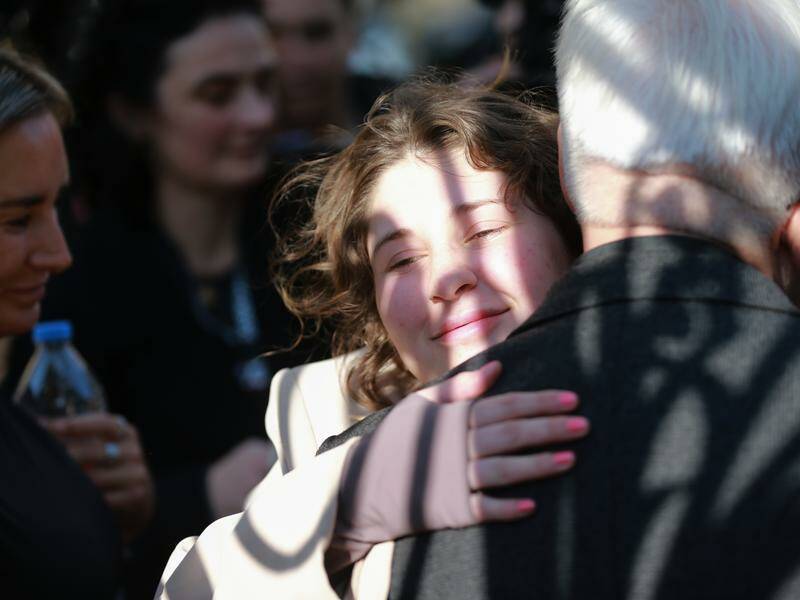
A pregnant teenager from the UK, Bella Culley, has been released from prison in Georgia after serving nearly six months for smuggling drugs. Culley, 19, was arrested in May 2023 at Tbilisi International Airport after arriving from Thailand, where she had reportedly gone missing. Under a plea agreement, she will not face additional jail time but has been fined 500,000 lari (approximately $286,000 AUD).
Upon her release, Culley expressed her surprise and relief, stating she did not expect to walk free. Flanked by her mother and lawyer, she shared her gratitude for the support she received during her ordeal. “I am very happy and relieved,” she said outside the courthouse.
Culley was found with 12 kilograms of marijuana and 2 kilograms of hashish in her luggage. Throughout the legal proceedings, she and her defense team claimed that she was tortured in Thailand and coerced into transporting the drugs. Initially, Culley pleaded not guilty to charges of possession and trafficking of illegal substances.
Details of the Plea Agreement
According to Vakhtang Tsalughelashvili, the prosecutor in the case, the plea agreement was modified to consider Culley’s age and pregnancy. Her lawyer, Malkhaz Salakaia, expressed gratitude that the authorities took her circumstances into account. The adjustments to the plea agreement highlight a growing awareness of the challenges faced by young individuals involved in drug-related offenses.
Culley’s case gained significant media attention, especially as Georgia has been intensifying penalties for drug-related crimes. Smuggling drugs into the country can lead to prison sentences of up to 20 years. Earlier this year, the Georgian government implemented amendments to increase penalties for the consumption and possession of narcotics, reflecting a broader crackdown on drug offenses.
Public and Legal Reactions
The high-profile nature of Culley’s trial drew public interest and concern, particularly regarding her pregnancy and the implications of her case on international perceptions of Georgia’s legal system. Legal experts have noted that the case underscores the complexities faced by defendants in the country, particularly those who may be victims of human trafficking or coercion.
Culley’s situation has sparked discussions about the treatment of young offenders and the legal protections available to them, especially when dealing with international drug smuggling cases. As she begins to navigate life after prison, the support of her family and legal team will be crucial in her adjustment.
The case illustrates the tightrope that legal systems must walk between enforcing drug laws and ensuring fair treatment for defendants, particularly in cases involving vulnerable individuals. As Georgia continues to tighten its drug laws, cases like Culley’s will likely remain in the spotlight, prompting calls for reform and greater international cooperation in addressing drug trafficking and its associated challenges.






